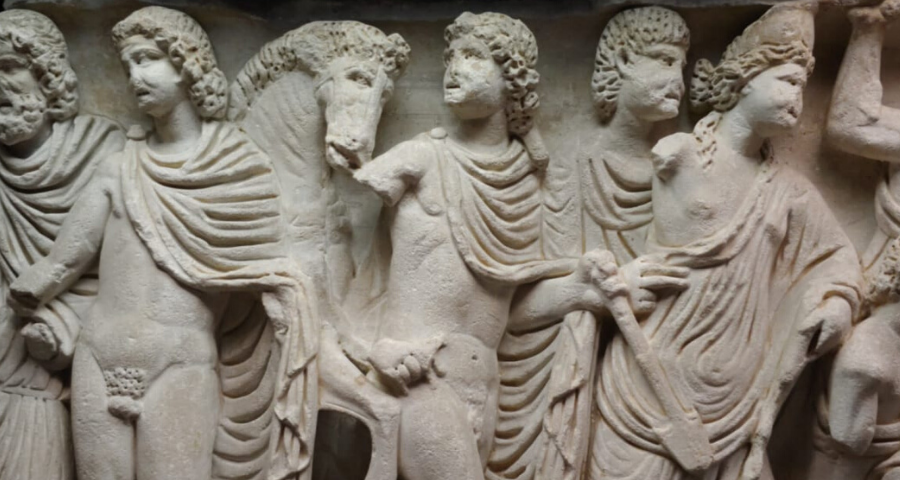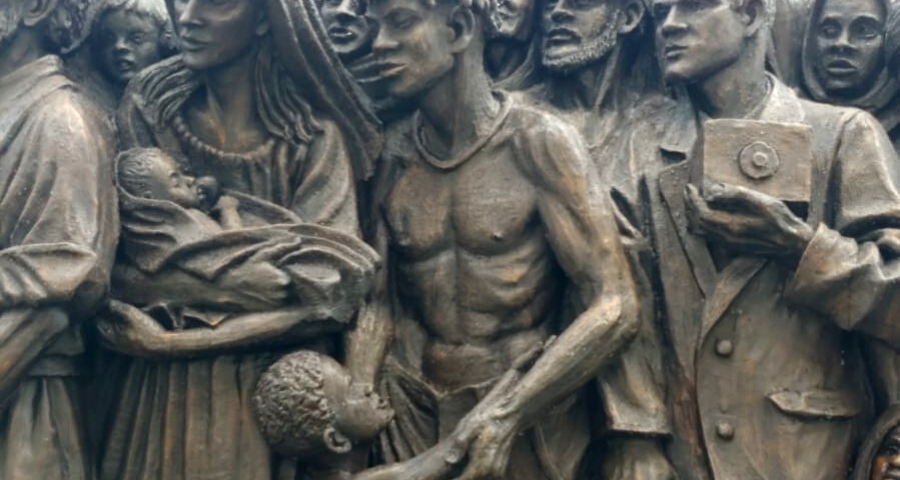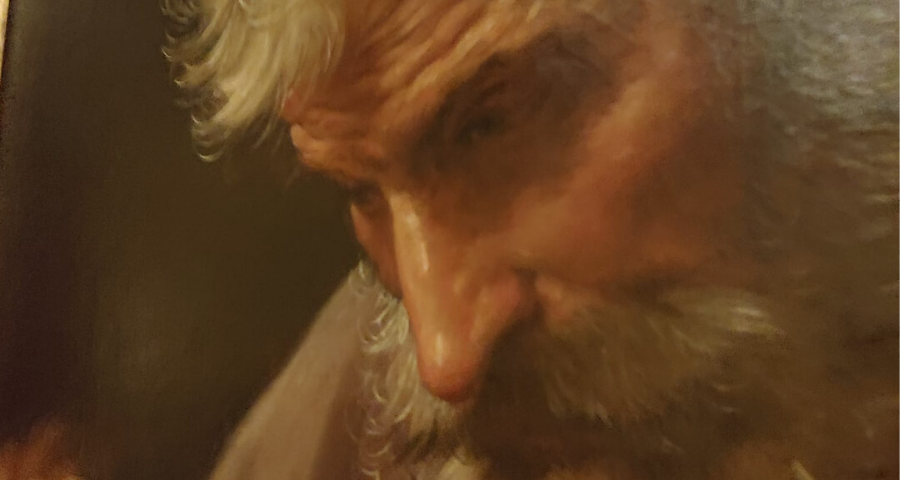Prophecy is history / 9 - The tempting prophets speak the same language as the honest ones
by Luigino Bruni
Published in Avvenire 28/07/2019
«Someone told me: you did not wake up to the vigil but to a previous dream. This dream is inside another dream and another and so forth in infinity. The road that you will have to travel backwards is endless and you will die before you really wake up. A man gradually merges with the shape of his destiny.»
Jorge Luis Borges, The writing of god
One can be a true prophet even without virtue, but not without obedience to the task received. This is one of the meanings of the parable of the two prophets in the Book of Kings. Another meaning is that only true prophets can lose their way.
In life motivations matter, sometimes a lot. They explain betrayals, loyalties and infidelities, increase or reduce their responsibilities. It is true, we know it and we re-learn it every day through our own personal experience and that of others. But in some truly decisive events, behaviour counts more than the motivations behind it. I can give you and give myself all the reasons why on that particular day I decided to listen to a voice that took me far away from you, but what really matters is that I left home and never came back. This anthropological truth becomes an absolute truth in prophetic vocations. The parable of the disobedient prophet and the lying prophet tells us precisely this with rare beauty.
We have arrived at a central event in the history of Israel. The Kingdom of David and Solomon is divided, the land of promise is torn in two. The tribes of the North (Israel) separate themselves from that of Judah. The north of the country follows a new king, Jeroboam, while the south remains with Rehoboam, son of Solomon. The beginning of the schism is marked by the action of a prophet, named Semaiah - the names of the prophets must always be spoken, because pronouncing them is a blessing: "This word of God came to Shemaiah the man of God: "Say to Rehoboam... This is what the Lord says: Do not go up to fight against your fellow Israelites"... So they obeyed the word of the Lord and went home again, as the Lord had ordered" (1 Kings 12,22-24). The prophets continued to save the people from fratricide. And two prophets are the protagonists of one of the most mysterious texts in the Bible.
"A man of God, by command of the Lord, took himself from Judah to Bethel, while Jeroboam stood by the altar to offer incense" (1 Kings 13,1). A prophet ("a man of God"), of the South, goes, "by command of YHWH" to the North, to relate to Jeroboam the word of YHWH on the future destruction of the altar of Bethel (1 Kings 13.2) and to accomplish a sign: "This is the sign that the Lord speaks: behold, the altar will be broken and the ash that is on it will be scattered" (1 Kings 13,3). Jeroboam raises his hand and tries to stop him (1 Kings 13.4), but his hand suddenly becomes withered. The king begs the prophet to turn his hand healthy again and so he does. Therefore "to the man of God the king said:" Come home with me for a meal; I will give you a gift" (1 Kings 13,7). The prophet replies: "Even if you give me half your house, I will not go with you and will not eat bread or drink water in this place, for I was commanded by the word of the Lord: "You will not eat bread and drink water, you will return by the road travelled in the outward journey" (1 Kings 13,8-9). The first scene ends with: the prophet rejects the offer of the gift (the gifts of the powerful are always dangerous), and reveals the order he had received from YHWH. And obeys the "command".
Second scene. "Now an old prophet lived in Bethel, to whom his sons went to tell how much the man of God had done that day at Bethel" (1 Kings 13:11). The old prophet of Bethel went to meet the man of God of Judah. He said to him: «"Are you the man of God who came from Judah?" He replied: "It is I"» (1 Kings 13:14). The old prophet makes exactly the same offer the king did before him: «"Come home with me to eat bread"» (1 Kings 13:15). And he gets the same answer: «"I cannot go back with you or come with you; I will not eat bread or drink water in this place, because a word was addressed to me by the Lord's command: "There you will not eat bread and drink water, nor will you return by the road travelled to the outward journey"» (1 Kings 13.16-17). Up to this point the story has a logic of its own: the prophet from Judah is carrying out his mission, faithful to the command.
But suddenly there is a turning point in the narrative: «He said: "I too am a prophet like you; now an angel has told me by order of the Lord: make him come back with you to your house, so that he may eat bread and drink water"». And immediately the text adds: "He was lying to him". But the man of God from Judah "returned with him, ate bread in his house and drank water" (1 Kings 13,18-19). The old prophet tells a lie - in the Aramaic translation of the Hebrew Bible (the Targum) the old prophet is constantly called a "liar". We do not know the reason for this lie. The man of God from Judah believed the word of the prophet of Bethel (1 Kings 13:19) and the new "order", and therefore disobeys the command received from God. This action is what counts in the story.
But here we have a second turning point: «While they were sitting at the table, the word of YHWH was addressed to the prophet who had made the other turn back, and he cried out to the man of God who had come from Judas: "Thus says the Lord: since you rebelled against the voice of the Lord, you did not observe the command that the Lord gave you ..., your corpse will not enter the tomb of your fathers"» (1 Kings 13,20-22). The lying prophet receives an authentic oracle from God, which condemns the man of God from Judah.
And in fact, as soon as he resumes his journey, the story is subject to a third twist: «He left and a lion found him on the street and killed him; his corpse lay on the road» (1 Kings 13,24). Knowing what had happened, the prophet of Bethel said: "That is a man of God who has rebelled against the voice of the Lord; this is why the Lord handed him over to the lion, who cut him to pieces and put him to death, according to the word the Lord had told him "(1 Kings 13,26). With this death the old man understands the authenticity of the disobedient prophet and also of his own word, also confirmed by the animal's unnatural behaviour ("The lion had neither eaten the body nor mauled the donkey" 1 Kings 13.28). Another biblical episode where animals become God's allies and speak to the prophets.
In fact, the conclusion containing the last surprise of the story is important: "The prophet took the corpse of the man of God, laid him on the donkey and brought him back ... After having buried him, he said to his children: "On my death ... you will put my bones next to his. "And he concludes: "For surely the word will come true that he cried out, by the command of the Lord, against the altar of Bethel" (13:29-32). The death of the man of God and the circumstances surrounding it make the old prophet understand the truth of the word brought by the disobedient prophet. The prophet dies, but his message, if true, does not.
A splendid story. The Bible continues to give us unexpected gifts. What is the meaning of this parable? We do not know for sure. Probably, as Karl Barth suggested, the location of the story at the beginning of the schism of Israel reveals a message linked to this great trauma. It is not to be excluded that the prophet of the North symbolizes Israel that of Judas the kingdom of the South, and that the lion is an image of Nebuchadnezzar who "killed" the tribe of Judah without devouring it (but deporting it), and it "dies" revealing the truth of his mission and message.
But this story can also contain the basis for prophetic vocations, and therefore the syntax for every vocation. The most exciting topic is in fact the obedience to a call, the loyalty to a task. Throughout the prophetic parable, the author is not interested in the motivations of the characters. Actions count. We do not know why the king invited the prophet home, why the old prophet lied, nor why the man of God from Judah believed him. And it is precisely in this secularity of the facts where the true gem of the story is hidden.
Behaviour counts in vocations. Vocations are essentially and exclusively the command of a voice and another voice that answers "here I am" (I added "freely", then I deleted it: freedom is too small a concept to understand a vocation, because it is essentially destiny). When I meet a voice that gives me a "command", what really matters is to obey that command. Only this has to be done, the rest - which is also there - does not count. And if I don't obey, because I believe in an angel or because an old prophet deceives me and seduces me, the vocation turns bad. This story of the two prophets tells us another thing as well: vocation goes bad even if it is true. Disobedience is the failure of true prophets - false prophets cannot disobey, because they have received no task. Only true prophets lose their way - this parable is full with words related to the road: to go, to return, to go back, to go far away.
We do everything we can to transform vocations into moral affairs, and the Bible keeps repeating to us that they are actually something else entirely. It begins with Judas and a message received as a command, begins because when a voice calls you can only begin/start; announce the message, not accept the offers of the powerful, not even "half of their reign", then pay close attention to the road, because not all roads are good. And while returning home, do not listen to either the prophets or the angels of God if they tell us to do something different from the task we have received. And this is the most difficult temptation, much more difficult than the offerings of the kings and the powerful, because the tempting prophets speak the same language as the honest ones. That old prophet was not necessarily a false prophet. He could simply be just a lying prophet (even true prophets commit sins and tell lies). The Bible is not interested in talking about the virtues of the old prophet, but in telling us the story of the failure of a true prophetic vocation - not of its message.
The death of the prophet is written in his disobedience. That man of God who came from Judah, was already prophetically dead for the Bible when the lion found him on the wrong path: that lion killed a dead prophet - and therefore there was nothing to devour, because vocations are not edible flesh. Obedience is the first virtue of the prophets, perhaps the only really necessary one. A prophet can be bad, a liar, vicious, but he will die if he stops obeying his destiny and his task. I met prophets who at the end of their lives brought only obedience with them: everything had died down, even the agape, and they arrived in heaven bringing obedience to the first voice heard as their only, unique, marvellous gift.
The Book of Kings does not give a name to those two prophets. The Jewish historian Flavius Joseph instead gives a name to that failed prophet who came from the South to respond to the calling of a voice: Jadon. Let's call him by name one last time, because even a failed prophet can guard and bring a blessing.
Download pdf article in pdf (203 KB)













